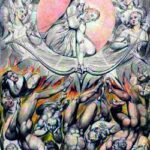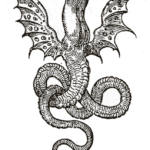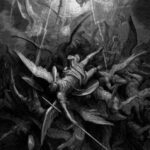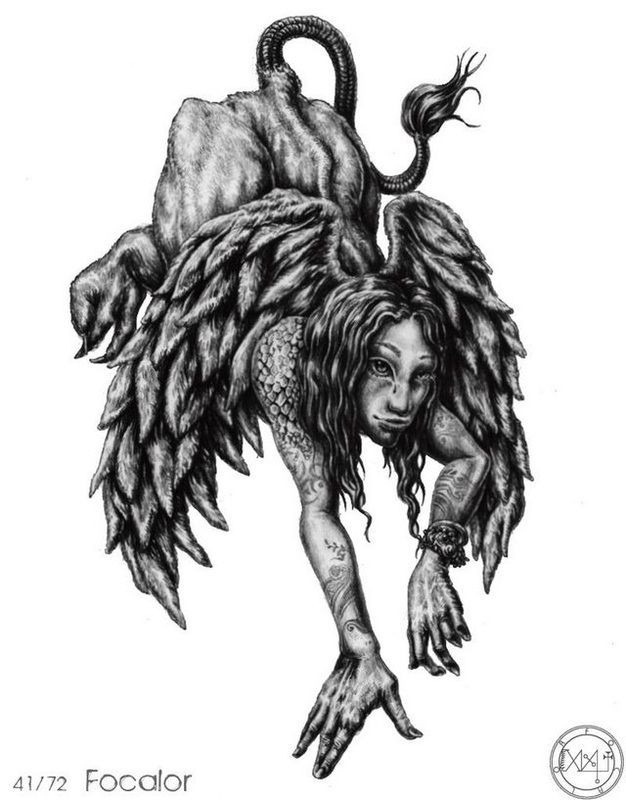The term Focalor refers to one of the lesser-known figures in the realm of fallen angels within various mythologies and religious texts. This being is often associated with the concepts of power and control, often depicted as a figure who commands significant influence over certain elements or aspects of existence. Focalor’s characteristics and the lore surrounding him are intriguing, offering insights into the beliefs and narratives that have developed over centuries. Understanding Focalor involves delving into the rich tapestry of angelology, the study of angels, and the historical contexts that shaped these beliefs.
Origins of Focalor
The origins of Focalor can be traced back to occult texts and grimoires that emerged during the Middle Ages. These texts often categorized angels and demons based on their functions and attributes. Focalor, specifically, is mentioned in the Goetia, a section of the larger work known as the Ars Goetia. This grimoire details the various spirits that can be summoned and their corresponding abilities. Focalor is depicted as a powerful spirit who can control the winds and the seas, making him a formidable figure within the hierarchy of fallen angels.
 Forcas
ForcasIn the Goetia, Focalor is often described as having a dual nature, embodying both benevolent and malevolent traits. This duality is a common theme among fallen angels, who frequently exhibit a blend of positive and negative characteristics. Focalor’s ability to influence natural elements positions him as a significant player in the cosmic balance, where his actions can lead to both creation and destruction. The lore surrounding him emphasizes the complexity of his character, inviting deeper exploration into the implications of his powers.
Characteristics of Focalor
Focalor is traditionally depicted as a figure who commands great authority over the winds and the ocean. This control over the elements signifies not only power but also a connection to the natural world. In many texts, he is portrayed as having a formidable appearance, often resembling a warrior or a king, which symbolizes his dominion over the forces of nature. His ability to summon storms and calm the seas illustrates the duality of his character; he can bring chaos or tranquility, depending on his intentions.
Another significant aspect of Focalor’s characteristics is his association with fear and respect. Those who invoke his name often do so with a sense of caution, acknowledging the immense power he wields. This fear is not just a reflection of his potential for destruction but also a recognition of the respect he commands among other spirits. Focalor serves as a reminder of the delicate balance between reverence and fear in the relationship between humans and the supernatural.
 Forneus
ForneusAbilities of Focalor
- Control over the Winds: Focalor can manipulate wind currents, which can be both a blessing and a curse.
- Influence on Water: He has the power to summon storms and control the seas, making him a significant figure in maritime lore.
- Strategic Warfare: His abilities are often sought in matters of strategy, particularly in naval battles.
- Protection and Guidance: Despite his fearsome reputation, Focalor can also provide guidance and protection to those who seek his favor.
Each of these abilities illustrates the complexity of Focalor’s character and the dual nature of his powers. While he can bring destruction, he also has the potential to offer protection and assistance to those who honor him. This multifaceted nature makes Focalor a compelling figure in the study of fallen angels, as he embodies the ongoing struggle between good and evil, creation and destruction.
Focalor in Popular Culture
In recent years, the figure of Focalor has found its way into various forms of popular culture, including literature, film, and video games. His portrayal often leans towards the darker aspects of his character, emphasizing his control over storms and the fear he instills. This representation aligns with the broader trend of depicting fallen angels as complex beings caught between light and darkness. In many stories, Focalor is not just a villain but a character with depth, often struggling with his nature and the consequences of his powers.
In literature, Focalor is sometimes referenced in works that explore themes of redemption and fallibility. Authors often use his character to delve into the moral dilemmas faced by those who wield great power. His presence in these narratives serves as a cautionary tale about the responsibilities that come with such abilities. This exploration of Focalor in literature highlights the enduring relevance of fallen angels in our understanding of morality and ethics.
 Furcas
FurcasFocalor and Spiritual Practices
Focalor’s influence extends beyond literary and cinematic representations; he also plays a role in various spiritual practices. Some practitioners of the occult and various esoteric traditions invoke Focalor for his abilities to control the elements. Rituals aimed at summoning Focalor often involve offerings and prayers that seek to appease him, acknowledging his power and seeking his favor. These practices reflect a deep-seated belief in the interconnectedness of the natural world and the spiritual realm.
In some traditions, Focalor is called upon during rituals aimed at gaining mastery over one’s own life circumstances. This aspect of his lore emphasizes the idea that those who can harness the powers of the elements can also exert control over their destinies. Practitioners believe that invoking Focalor can lead to personal empowerment and transformation, allowing individuals to navigate the storms of life with greater ease and confidence.
Focalor and the Concept of Fallen Angels
The concept of fallen angels is rich and varied, encompassing a range of beliefs about angels who have fallen from grace. Focalor fits into this framework as a being who embodies the complexities of power, control, and morality. The idea of fallen angels often revolves around themes of rebellion, temptation, and the consequences of defying divine order. Focalor, with his dual nature, serves as a prime example of how these themes manifest in the lore surrounding supernatural beings.
Fallen angels, including Focalor, are frequently depicted as having once held positions of great honor and authority before their fall. This narrative underscores the fragility of power and the ease with which it can be corrupted. Focalor’s story serves as a reminder that even those with immense capabilities can struggle with their nature and the choices they make. This complexity makes fallen angels relatable figures in our exploration of morality, as they reflect our own struggles with power and responsibility.
Comparative Analysis with Other Fallen Angels
- Lucifer: Often seen as the most prominent fallen angel, representing rebellion against divine authority.
- Asmodeus: Known for his association with lust and excess, showcasing the darker aspects of human nature.
- Beelzebub: Often linked to gluttony and pride, embodying the consequences of unchecked desires.
When comparing Focalor to other fallen angels, it becomes evident that each figure represents different aspects of human experience and morality. While Lucifer embodies rebellion and pride, Focalor’s narrative revolves around the control of nature and the balance of power. This diversity in characteristics allows for a more nuanced understanding of fallen angels and their roles within various belief systems. Each figure offers unique insights into the human condition, inviting reflection on our own choices and moral dilemmas.
The Legacy of Focalor
The legacy of Focalor continues to evolve as new interpretations and representations emerge. His story serves as a bridge between ancient beliefs and contemporary understandings of morality and power. As society grapples with the complexities of authority and control, figures like Focalor remain relevant, offering lessons on the nature of power and the responsibilities that accompany it. The ongoing fascination with fallen angels, including Focalor, highlights our enduring interest in the supernatural and the moral questions it raises.
In many ways, Focalor represents the timeless struggle between light and darkness, order and chaos. His legacy encourages individuals to reflect on their own relationship with power and the impact of their choices on the world around them. As narratives surrounding fallen angels continue to evolve, Focalor’s role as a symbol of complexity and duality will likely endure, inviting further exploration into the realms of the supernatural and the human experience.
